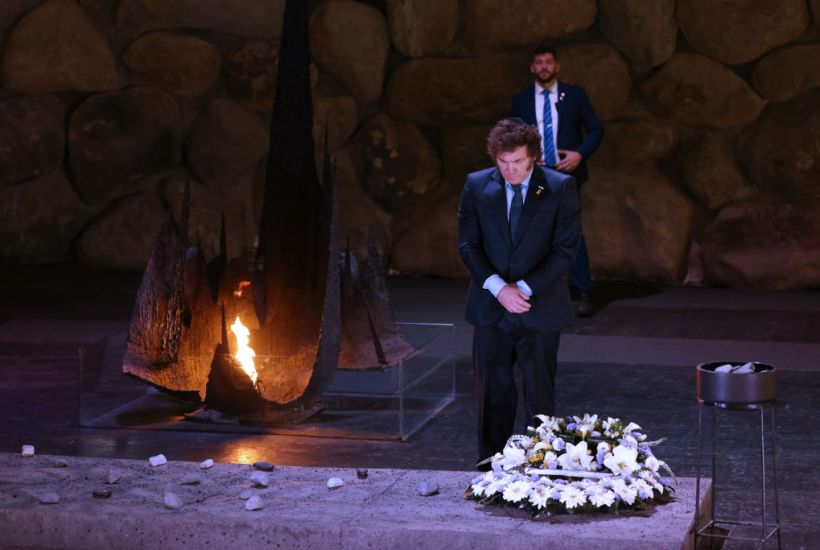When Javier Milei visited Israel and announced that he would be moving Argentina’s embassy to Jerusalem, I suppose that was terribly ‘populist’ of him.
Try as I might, I can’t find it in me to be appalled by Milei’s pronouncement, and not because he already floated it during his election campaign. For one thing, it must be nice to have a government that decides its own foreign policy rather than contracting out such matters to the European Commission, the US State Department and the NGO sector.
Already a subscriber? Log in
Subscribe for just $2 a week
Try a month of The Spectator Australia absolutely free and without commitment. Not only that but – if you choose to continue – you’ll pay just $2 a week for your first year.
- Unlimited access to spectator.com.au and app
- The weekly edition on the Spectator Australia app
- Spectator podcasts and newsletters
- Full access to spectator.co.uk
Or




















Comments
Don't miss out
Join the conversation with other Spectator Australia readers. Subscribe to leave a comment.
SUBSCRIBEAlready a subscriber? Log in